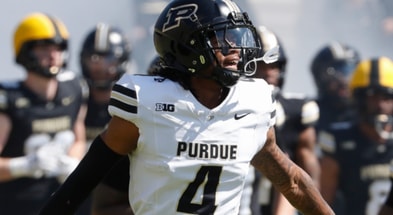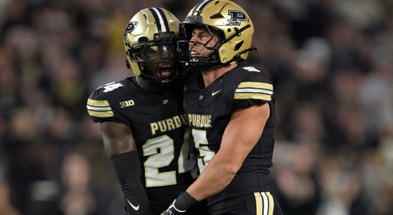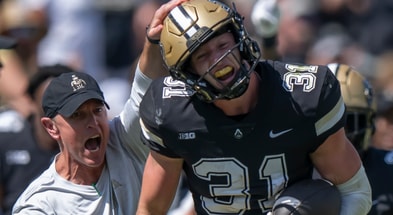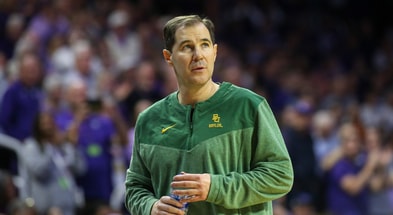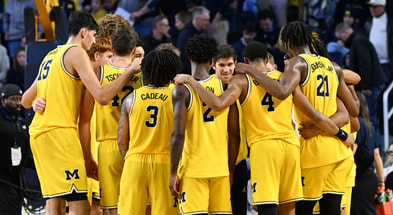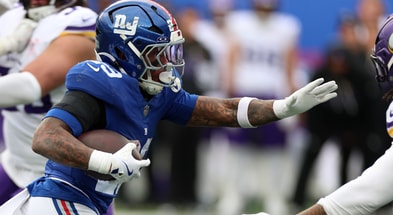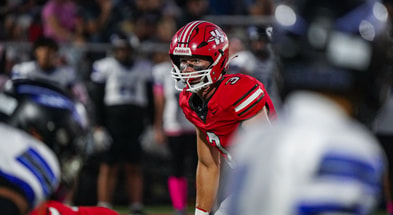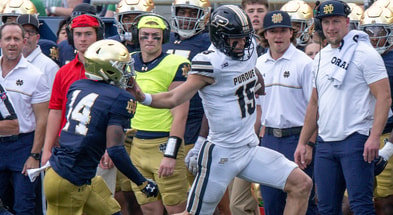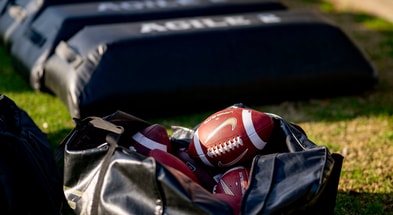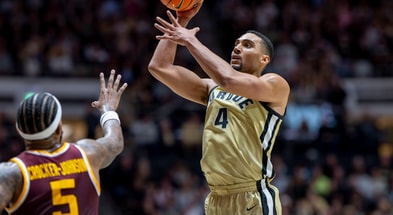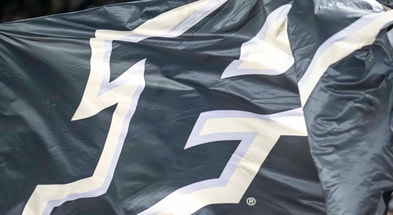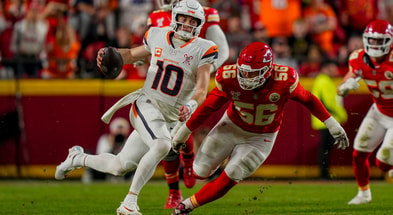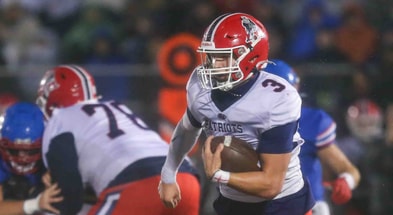GoldandBlack.com Analysis: The end for Ryan Walters at Purdue and what may lie ahead
Purdue had no choice, none whatsoever.
Under a different set of circumstances — one in which there were any positive undercurrents to the worst football season in Boilermaker history — Ryan Walters may have gotten Year 3. Preparing for all contingencies, Purdue had a working plan to build a new infrastructure around him to try to change the trajectory of a coaching era that fell apart in what seemed like seconds, somewhere around Notre Dame’s fifth touchdown.
But as a wise man once said, “Everybody has a plan until they get punched in the face.”
What happened at Indiana Saturday wasn’t a punch in the face. It was a tire iron to the face knocking a man out. Then a piano falling on the man. Then a dump truck running over the piano.
More: Purdue fires Ryan Walters

Subscribe to GoldandBlack.com on YouTube
Regardless of what happened in Bloomington, it was already evident that this was a failed state and rebuilding around Walters would likely have been a waste of time, money and energy.
“Not being competitive in football is not an option.“
— Mike Bobinski, some weeks ago
Walters might go on to be a fine coach for somebody one day, but this season at Purdue showed beyond a shadow of a doubt he wasn’t the guy here, as much as firing a guy after two seasons goes against everything I’ve ever believed after two decades of covering this absurd sport.
Turned out it was a bad hire.
So who gets the blame? That’s the question everyone wants answered, as is human nature. What good are fingers if they’re not being pointed?
Reality is that no one stakeholder here bears full responsibility. It was a total team effort.
Purdue’s administration genuinely believed in Ryan Walters when it made what was a pretty outside-the-box hire, so surprising that this idiot writer and editor stood in the way of our staff acknowledging him as a candidate. But Purdue believed him to be a rising star and someone worth hiring now vs. wanting to hire later, opting to swing for the fences instead of bunting runners over with a safe, boring 6-6 type of hire. It missed. Walters is not even 40 years old and may yet live up to what Mike Bobinski and his team saw back then, but it just won’t be at Purdue.
But there’s more to it.
The worst part of this season wasn’t the record; it was the rolling over, for which the players deserve blame. That’s in part on coaches, yes, because if a coach demands a roar and gets a sad trombone in return, then that coach recruited or inherited the wrong players. But at some point personal pride, if nothing else, could have kicked in and kept 35-7 losses from turning into 66-7. But a lot of these players weren’t recruited by Walters.
That’s the second stop on Blame Ave. … years of Brohm Family transactional program building, the nadir of which was that bowl game defined by opt-outs and academically ineligible standouts. This is the second (out of two) Jeff Brohm successors fired after Year 2, a clear reflection of flimsy foundations being laid bare once the fresh coats of paint peel off.
Stop No. 3 on Blame Ave. lies with the La Cosa Nostras of the Big Search and Big Agent deep states that pull strings in the shadows, subject to no accountability, but with enough weaponized influence over the marketplace to extort. I don’t know what Purdue got for its money from its search firm on this hire but I do know it didn’t come with a gift receipt.
Stop 4 on Blame Ave. lies with something no one could control. The past two seasons of the new Portal-and-NIL world in college football was everyone’s worst fear come to life. Purdue lost its best guys to more NIL money elsewhere, gave its NIL money to bad investments and wound up with a locker room of mercenaries getting paid to go 1-11 and agitated returnees who knew how much those mercenaries were getting before taking a snap at Purdue. That’s an oily rag in a fuel tank if there ever was one. And you wonder why Purdue fell like a house of cards at the first sign of trouble almost every time out.
Coaches can worry, justifiably, about what they do or do not have from an NIL perspective, but they should be judged not on the size of their slush fund but on how they’re spending it and Purdue blew a lot of money on paper tigers.
Lastly, and obviously, blame lies with Walters himself, for not knowing what he didn’t know. He thought he had all the answers on his first day and wound up proven to have had none on his last day.
The issue to me that stuck out right away about Walters — and I know this sounds like hindsight being 20/20 — is that he was clearly a creature of ambition when he got to Purdue based on his path to it and what happened was he got what he wanted too quickly, before he had spent enough time around really good, established coaches and accrued enough wisdom to be ready for the job when his time came.
It was too much too fast. He needed experience around him, but did not have the experience within him to have that self-awareness. That staff walked in here like they knew it all, and a few of those dudes from a coaching perspective were more or less kids and sometimes acted like it, and that was a big part of this problem.
You banked on Ryan Walters being the new model as the new model for college football in general took hold, a young, brash guy who could relate to players, who could work the portal, who could be savvy and charismatic and just be a draw in recruiting and a motivator on the sideline, and that was an absolute disaster.
There were no schematic advantages. The defensive scheme he rode to his big chance has had holes punched in it left and right for two years now, this season being an embarrassment, Purdue chased out of its intended identity altogether and just being bad at everything.
The defensive-schooled head coach learning how to be an offensive coordinator in-season is still one of the stranger things I’ve seen at Purdue, but the product of another pivotal mis-step.
Purdue wanted to assuage introduction day concern over it deviating from its passing- and quarterback-driven history, so it put a face on it, Graham Harrell’s, paying him a million bucks a year to run an Air Raid-derived offense. Turned out Harrell was a brand more than he was an effective coach and my firm belief is he broke Hudson Card, Purdue’s best chance for success at the outset of this staff’s tenure here.
That Purdue’s offense was better with Walters calling plays was a credit to Walters but also a damnation of the offensive coordinator cut loose a third of the way into the season.
Walters wanted to be both sound on defense and explosive on offense, a balance that is very difficult to achieve without talent superior to everyone on your schedule. Purdue was bad on defense for reasons that go beyond being turnover-prone and three-and-out-y on offense, but it sure didn’t help. In football, everything is connected, and to hear Walters talk incessantly this season about “complementary football,” it was as if he was only now realizing that.
Top 10
- 1Breaking
Deuce Knight
Plans to enter Transfer Portal
- 2
Kewan Lacy
Updates his status for CFP
- 3
Chip Kelly
Back in the Big Ten
- 4Hot
Clemson coaching shake up
Two coaches out
- 5Trending
Transfer Portal Intel
Sam Leavitt, Caleb Hawkins scoop
Get the Daily On3 Newsletter in your inbox every morning
By clicking "Subscribe to Newsletter", I agree to On3's Privacy Notice, Terms, and use of my personal information described therein.
I don’t know Walters at all. I introduced myself to him when he was hired, then went away for six months. I’ve never otherwise said a word to the man without a microphone in my hand. I don’t know the man. But I like to think I know coaches and think that sometimes the really ambitious guys who just try to get to the mountaintop in record time, they might tend to not stop along the way to take deep breaths in the name of professional development, to gain the wisdom that will help them not just reach the mountaintop, but have the lung capacity to stay there.
(I’ll give you a great example: Basketball is a different sport, but Micah Shrewsberry and Steve Lutz both could have jumped right to head coaching jobs from their prior stops, but both chose to spend time with Matt Painter and Mike Bobinski to help them not just get there, but to be ready when they did.)
Walters surrounding himself with young, and in some cases immature, coaches didn’t help, but the ambitious sometimes find themselves with narrow networks from which to draw. It’s a relationships business and when you average a new school every two years in your career, how many of those relationships do you have? And then when you get the biggest opportunity of your career, you end up with people you don’t know, and then your offensive line coach ends up having to resign before coaching a game, your tight ends coach bolts after a year for a coordinator job and your most important hire, your OC, goes sideways. Among other issues.
Last season wasn’t great, but it was enough. This season was an utter catastrophe, insofar as anything involving sports frivolity can be described as such.
Purdue had no choice here but to make a change, at a less-than-ideal time when the whole structure of the job might be changing with revenue-sharing and the university facing some administrative transitions.
There’s no good time for this, but it is no coincidence that high-major football went the whole regular season without a single job opening. People need to get a lay of the land here, and money is no longer just the board-game variety. People don’t understand what kind of undertaking changing football coaches is at this level. It’s like parallel parking a school bus on Michigan Ave.
You have to make absolute commitment. You have to often re-arrange organizational structure. You have to free money not just to get rid of the old guy but hire and invest even more in the next guy. In college football, More is king. And again, money is suddenly a finite resource.
This is the situation Purdue didn’t want to be in, but the Indiana game left it no other option. This had to be Sunday, Bloody Sunday.
Last point I want to make here: When coaches lose, passionate fans tend to view them as stupid people or fraudsters or some combination thereof. That was not the case here. This was just a young coach who ran into situation for which he did not have answers. Someday he might.
Ryan Walters does not need career advice from me, but I think the best path for him would be to take a few months, if not a whole year, think about what happened here at Purdue, and to this defense to which he is so committed, and learn from it. Whereas I think Ryan Day ought to go work at Barnes & Noble for a year, then go coach somewhere else, I think Walters would be wise to go be a coordinator somewhere big or an analyst for someone great — not sure who the post-Nick Saban Nick Saban is — and just learn from this. The next opportunity might come sooner than you’d think. It may not be a Big Ten job, but opportunities are opportunities.
As for Purdue, you’ve seen before how quickly things can flip. You’ve seen it at Purdue and you’ve seen it elsewhere. College football is a funny thing when it comes to losing. Losing makes people excited for the bounce back. The next guy will be “him” for a few months and have a chance to build and maintain momentum. Fans will realize how much they enjoy college football Saturdays and they will come back one way or another. They showed these past two seasons they want to show up. And Purdue needs them, which had to be part of the calculus on whatever it was going to do with Walters.
Purdue is in capable hands. Yes, Walters’ failure goes on Mike Bobinski’s record, but only as counterweight against all the transformative change he’s overseen at Purdue. Don’t mistake the results of this season with “commitment.” Purdue is never gonna be Ohio State when it comes to resources and absolute commitment to winning and only winning — and look where that got them, pepper-sprayed — but it does have a seat at the big boy table. It might be on the periphery of the big-boy table, but it has a seat the big-boy table. They have invested in sports at a much higher level this past decade or so and will continue doing so.
It just needs to acclimate to the new realities of college football better than they have these last two seasons and they need to get the right guy to do that.
That might be a sitting head coach somewhere. It might be an assistant coach somewhere. There’s no right way wrong way. People get hung up on offensive guy or defensive guy, things like that. People look at successful coordinators as if coordinator and head coach aren’t entirely different jobs.
The only thing that matters is getting the right guy.
That sounds so simple, but is anything but, as the Ryan Walters Experience just underscored.
